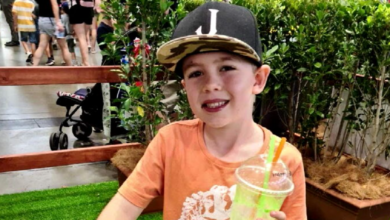Latest NBN NewsNewcastle News
NBN NEWS FEATURE: HOW BEST TO ENHANCE LEARNING FOR OUR KIDS

 As the old saying goes, learning begins at home.
As the old saying goes, learning begins at home.
But as life becomes more hectic, many parents are spending hundreds of dollars a term to enlist help to ensure their babies and toddlers get the best start.
Structured play groups are gaining in popularity, so in part one of this news feature, NBN’s Kate Haberfield decided to find out if they are worth it.
PART TWO:
Parents are spending hundreds of dollars on programs to help their children get a head start.
But as NBN’s Kate Haberfield discovered, many of the skills learnt at these classes can just as easily be developed at home with mum and dad.
text will be replaced





Children do not and should not have to “get ready” to go to school. Schools need to be ready for the child. The time before school is important in its own right. It is not training for school. There needs to be greater respect for the child including a reimaging of our understanding of the child, brain development, child hood, early learning philosophes and best practice.
I look forward to tomorrow night when you report your research and interviews with Early Childhood professionals who have a greater knowledge of contemporary early learning theories, philosophy, pedagogy and best practice.
As a teacher with qualifications in Early Childhood and an interest in Early Learning, I feel compelled to comment…my first time ever!
So true Kim Moroney….giving the parent help and letting the child do it at their own pace is so important but not always practical in today’s society…lucky stay at home parents are holding their child back from the first year of school to let them enjoy more preschool FUN activities before the hard yakka starts….sadly though more and more parents HAVE to have the child ready by bang on five years old because of their need to BOTH return to work fulltime…..it is such a juggling act for everyone and that is where all of us Early Childhood Educators can hopefully help get the balance right AND take the guilt away from these hard-working parents needing to make tough decisions based on financial need.
I have been lucky enough to have my family around me to watch my little girl since my return to work following maternity leave so I haven’t had to pay childcare fees. At first I thought she might be missing out on time interacting with and learning from kids her own age. We have been enjoying our Kindermusik classes for a while now and I still love watching all of the babies and toddlers learn from each other having fun as well as all of the fantastic toy/instruments we get to experience in class. No class is ever the same with different games songs etc. I have been pleasantly surprised with the take home books and instruments not to mention the CD’s with so many different styles that both my partner and I find ourselves dancing to that we would never have taken time to listen to in the past being fans of rock music! Great activities online and printable ones too. It was never about making my little one ready for school or being smart, just fun and the fact she is learnin along the way that is just a bonus. We are definitely a Musicrazy family now!
While it would be great if schools were made to be ready for the child, the reality is that children are expected to be functioning at a certain level of development when they start school. We know this is not happening. Nearly 25% of children (more in many areas of Australia) are developmentally vulnerable and ‘at risk’ of school problems (AEDI, 2012), and research (see the work of Sally Brinkman and her team, 2013) showed that these children are highly likely go on to have learning and /or behaviour challenges for the rest of their school lives. If it is possible to reduce this risk purely by engaging young children in fun games and activities that promote healthy development and school readiness.. then what is the harm in that? Surely it is better to avoid problems – especially when it can be fun doing so – rather than wait for them to occur and risk the long term repercussions that has on both school work and emotional well being. There are lots of early childhood teachers doing a great job with our youngsters, but I am sure they will appreciate just how much easier it will be if children were developmentally ready to learn by the time they start school.
I am one of the parents that was in the gymbaroo class featured in this story. My daughter loves going to gymbaroo. She socialises with the other children and has access to equipment and resources that we can’t provide at home. It’s a wonderful bonding experience for the two of us an in no way is it seen as “school”. It’s great fun and I highly recommend it to anyone.
Thanks so much for your kind words Kim T….love having you both in class too….see you tomorrow. Jude:)
Thanks for the comments!
I have a daughter who is involved in structured learning classes and she (and I) absolutely love it, which is what prompted me to look a little deeper into them. It’s nice to know they are worth the money, but also that by engaging with children and involving them in appropriate household tasks we can really help their development.
Kate Haberfield
What was evident from the clips, the parent comments, and Zsuzsa’s comments was that children don’t need to be made “ready to learn” on the first day of school. As we could see in the clips, and as I have been re-reminded by watching my own grandaughter, they soak up learning from the day they are born. Perhaps we could redefine “school readiness” as “the ability of schools to build on the learning children bring to classrooms”. Perhaps if the play-based pedagogy continued for a few more years in schools supported by early childhood teachers, as it does in the Scandanavian countries that do so well on international final year testing, some of the ‘learning problems” may disappear.